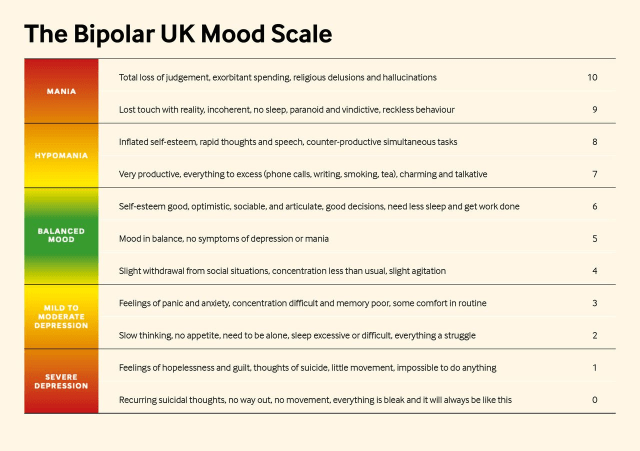Bipolar is a life-long severe mental health illness characterised by highs and lows. Without the right treatment and support, bipolar can cause untold damage to someone’s life. The highs can lead to delusional thinking, excessive spending and risky decision making. Tragically, the lows can lead to suicide. People with bipolar may also experience episodes of psychosis at either end of the mood spectrum, a psychiatric emergency that requires urgent help and support.

Bipolar UK’s Mood Scale is a helpful resource for understanding the condition.
The facts
- There are over a million people living with bipolar in the UK – that’s roughly 1 in 50 people
- Bipolar affects people from all backgrounds, making little distinction across the world between social class, sexuality, ethnicity and gender
- People living with bipolar are 20 times more likely to take their own life
- People living with bipolar are 50 times more likely to self-harm
- Almost 50% of people with bipolar develop symptoms before the age of 21
- It takes an average of 9.5 years to get a diagnosis
But there is hope. With effective treatment, support and self-management, people with bipolar can lead full and productive lives.